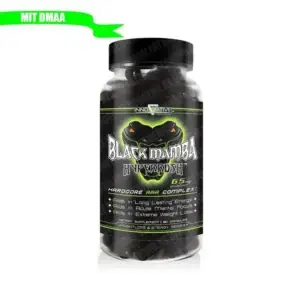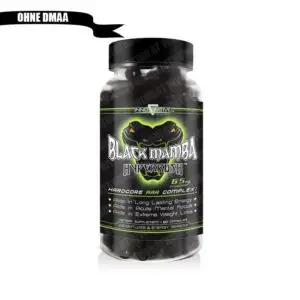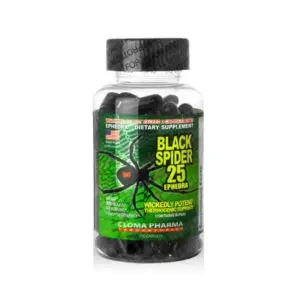Berberine has become increasingly popular in recent years and is being used more and more frequently as a natural remedy. This herbal alkaloid is known for its many health benefits, which have been valued in traditional medicine for centuries.
Berberine is primarily found in plants such as barberry and is an established remedy in various cultures. Scientific studies are beginning to shed light on the effect of this natural substance on modern health and to define its potential applications more clearly.
What is berberine?
Berberine is a natural, nitrogenous compound used in traditional Chinese and Ayurvedic medicine. It is extracted from various plant species and has numerous health benefits.
Berberine improves insulin sensitivity, lowers cholesterol levels and has an anti-inflammatory effect, which makes it particularly helpful for people with insulin resistance or type 2 diabetes. A key effect of berberine is the activation of the enzyme AMPK (AMP-activated protein kinase), which plays a central role in metabolism and inhibits the formation of fat cells. Berberine can therefore be used to support weight loss attempts.
Studies show that berberine is comparable in its effectiveness to the drug metformin, as both lower blood sugar levels and improve insulin sensitivity. In addition, berberine has antimicrobial properties and promotes the balance of intestinal flora, which contributes to general health and well-being.
Effect of berberine
- Improvement of insulin sensitivity
- Lowering the cholesterol level
- Inhibition of the formation of fat cells
- Antimicrobial properties
- Support of the intestinal flora
This natural alkaloid offers a plant-based alternative for a balanced and healthy lifestyle.
Origin and occurrence
Berberine is a remarkable plant alkaloid that occurs in various plant species. It is found in the common barberry (Berberis vulgaris), turmeric (Hydrastis canadensis) and Coptis chinensis, among others. The alkaloid was isolated from the Jamaican worm bark of the barberry in 1835 and has a striking yellow color that was traditionally used to dye wool and leather, especially in northern India.
Berberine has long been known in traditional Chinese medicine and is used to treat various diseases. This traditional use is also attracting increasing attention in modern science. Researchers are intensively investigating the potential health benefits of berberine and its many applications.
- Berberis vulgaris (common barberry)
- Hydrastis canadensis (turmeric)
- Coptis chinensis
- Dyeing: Wool and leather dyeing in North India
- Medicine: Traditional applications in Chinese medicine
Berberine remains a subject of intense research due to its versatile health-related properties.
Health benefits of berberine
Berberine is a versatile phytochemical that offers numerous potential health benefits. Due to its ability to influence various physiological processes, berberine is increasingly considered a valuable supplement in both traditional medicine and modern research.
Support for cardiovascular health
Berberine can promote cardiovascular health by lowering cholesterol levels and acting as an antioxidant. These properties help to protect arteries from damage and reduce the risk of heart disease. Berberine also has vasodilatory effects that can improve blood flow and naturally lower blood pressure. Studies suggest that it inhibits platelet aggregation and could therefore reduce the risk of blood clots. In combination with red yeast rice, berberine could have further beneficial effects on the cardiovascular system.
Regulation of blood sugar levels
Berberine has the potential to regulate blood sugar levels by improving insulin sensitivity and supporting glucose metabolism in the cells. It activates the enzyme AMPK, which contributes significantly to the optimization of glucose metabolism. These mechanisms make berberine a valuable complementary option in the treatment of insulin resistance and type 2 diabetes. It also has anti-inflammatory properties, which could be helpful for blood sugar problems.
Positive effects on the gut
Berberine has an antimicrobial effect and can reduce harmful bacteria in the gut while protecting the beneficial bacteria. This makes it an effective remedy for gastrointestinal complaints. Berberine also has anti-inflammatory effects, which can be helpful in chronic inflammatory bowel diseases such as Crohn's disease or ulcerative colitis. It promotes a healthy intestinal microbiome, supports the intestinal barrier and can counteract diarrhea. By inhibiting cholesterol absorption in the intestine, berberine contributes to general digestive health.
Possible effects for weight reduction
Berberine can contribute to weight loss by stimulating the metabolism and promoting fat burning. It regulates the activity of hormones that influence appetite and fat storage. By reducing fat absorption in the intestine and increasing fat burning in the liver, berberine offers benefits for people who are overweight. Many users report positive experiences with Berberine in weight loss, especially in combination with a balanced diet and regular exercise. The activation of the enzyme AMPK by berberine plays a central role in the metabolism and can inhibit the formation of fat cells.
Dosage of Berberine
The recommended daily dose of berberine is between 500 and 1500 milligrams, depending on individual tolerance. A lower initial dose is often recommended for newcomers in order to test the body's reaction.
- Beginners: Start with a lower dose.
- Recommended practice: Divide the dose between 900 and 1500 mg per day.
- Duration: Take consistently for at least 12 weeks.
To improve tolerance and minimize gastrointestinal discomfort, Berberine should be taken after meals. Meals rich in carbohydrates are particularly preferable, as berberine can help with weight loss and at the same time increase the strength of the diet.
Example of a daily dosage
| Daily dose (mg) |
Portions per day |
| 900 mg |
3 x 300 mg |
| 1200 mg |
3 x 400 mg |
| 1500 mg |
3 x 500 mg |
Berberine can be a valuable supplement to support a healthy lifestyle. However, it is important not to exceed the maximum dose and to monitor individual tolerance.
Questions about taking berberine
Berberine is a popular herbal dietary supplement that is characterized by its positive effect on metabolism and its role in sugar management. However, there are some important points to bear in mind when taking berberine in order to achieve the best possible results and minimize risks.
Correct intake times
The recommended daily dose of berberine is between 500 and 1500 milligrams, although it is important to divide this amount into two or three doses per day. This division improves tolerability and effectiveness.
It is preferable to take it during meals to maximize absorption and reduce gastrointestinal discomfort. Especially when regulating blood sugar levels, it is recommended to consume the daily dose in three single doses of 500 mg each. It is also important to note to take enough carbohydrates per meal together with berberine (at best even berberine HCL) to draw more glucose into the muscle cells. To get the full benefits, Berberine should be taken regularly for at least 12 weeks.
Combination with other foods or supplements
Berberine can be combined with other food supplements to achieve synergistic effects. It works particularly well with:
- Red mold rice
- Cinnamon extract
- N-ARA-LA
- Spirulina
- Odorless garlic oil
- Green coffee extract
No specific foods or drinks are known to impair the effectiveness of berberine. However, people taking medication such as blood thinners, immunosuppressants or blood pressure medication should exercise caution. There is a risk of potential interactions.
The simultaneous use of berberine with other dietary supplements such as garlic, ginger, ginkgo, nattokinase and panax ginseng may also reduce blood clotting. People taking antidiabetic or cholesterol-lowering medication should keep an eye on possible interactions and clarify the use with a doctor.
Overall, an individual consultation with a doctor or pharmacist can help to determine the appropriate dosage and combination of Berberine for your personal health goals.
Potential risks and side effects
Berberine is a herbal alkaloid that is widely used in traditional Chinese medicine. Despite its positive properties, such as the ability to draw glucose into muscle cells and potential weight loss benefits, there are potential risks and side effects.
- Toxic effects: At high doses, berberine can cause drowsiness, nosebleeds, vomiting, diarrhea and kidney irritation and inflammation.
- Digestive complaints: As with many dietary supplements, stomach discomfort may occur.
- Allergic reactions: Hypersensitivity reactions are possible.
- Medication: Berberine can enhance the effects of certain drugs, which can lead to dangerous concentrations in the body.


















